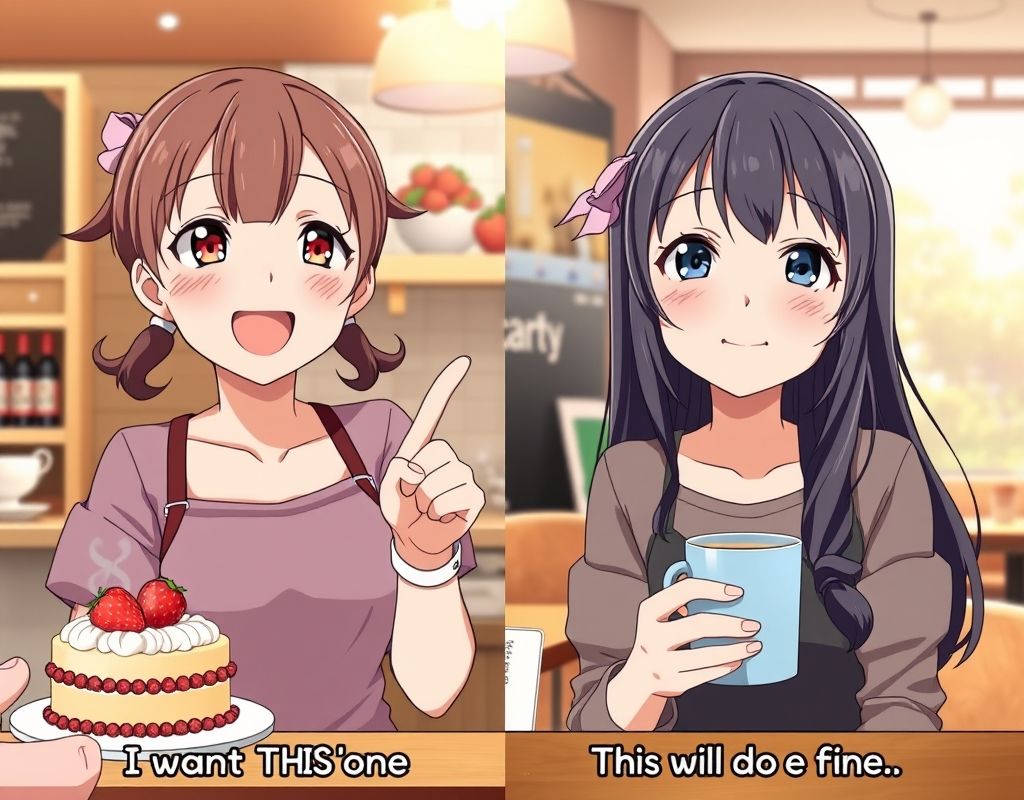
'~de ii' vs '~ga ii': One word changes everything!
'~de ii' vs '~ga ii': One word changes everything!
Hello everyone, it's me again! With over 10 years of experience in Japan, I've realized there are tiny grammatical details that books rarely delve into, but they completely determine the nuance of your sentences. Today, we'll dissect the most confusing pair: 'de ii' (でいい) and 'ga ii' (がいい).
Both can be translated as '...is fine/good,' but the feeling the listener gets is a world of difference! 😉
👑 '~ga ii' - When you know what you want
This is how you express a proactive, clear, and intentional choice. When you use ga ii, you are affirming, 'Among the options, I want this one the most!'
Example: You and your friends are choosing a place for lunch.
A: 「お昼何食べる?」(What should we have for lunch?) B: 「私はラーメンがいい!」(I want ramen!) 🍜
Here, person B clearly expresses their desire. This way of speaking is very direct, and there's nothing wrong with it, especially when you really have a clear preference.
🙏 '~de ii' - When you are easy-going (or a bit resigned)
This is the true 'star' of subtlety. de ii implies 'that's also fine,' showing flexibility, not being demanding, or a somewhat compromised choice.
Example 1: When invited to someone's house.
Host: 「飲み物、何がいい?ビール?お茶?」(What would you like to drink? Beer or tea?) You: 「あ、お茶でいいです。ありがとうございます」(Ah, tea is fine. Thank you.) 🍵
In this situation, using お茶がいいです would sound a bit like giving an order or being demanding. Using de ii shows humility and being easy-going, like 'I'm not being a bother, tea is great.'
Example 2: When your first choice is not available.
You: 「すみません、とんかつ定食ください」(Excuse me, a tonkatsu set meal, please.) Staff: 「申し訳ありません、とんかつは本日売り切れでして…」(We are very sorry, tonkatsu is sold out today...) You: 「あ、そうですか。じゃあ、唐揚げ定食でいいです」(Oh, I see. In that case, the fried chicken set is fine.)
Here, de ii shows that fried chicken wasn't your first choice, but it is an acceptable alternative. Using 唐揚げがいい in this case would be very strange!
🧐 Direct Comparison
| Situation | '~ga ii' | '~de ii' |
|---|---|---|
| Your boss asks where you want to go on a business trip. | 「大阪がいいです!」(I want to go to Osaka!) → Confident, has a clear wish. | 「どこでもいいです」(Anywhere is fine.) → Flexible, ready to follow the decision. |
| Friends invite you to a movie, choosing a film. | 「あのアクション映画がいい!」(I want to see that action movie!) → Decisive. | 「みんなが見たいやつでいいよ」(Whatever everyone wants to see is fine with me.) → Easy-going, prioritizes the group. |
⚠️ The Pitfall of 'de ii'
Be careful, sometimes de ii can also carry a slightly negative, reluctant nuance, like 'Well, I guess this will have to do.'
「もう、これでいいや…」 (Oh well, I guess this is fine...)
This sentence shows frustration and giving up, not wanting to try to find a better option anymore.
✨ Conclusion
- '~ga ii': Use when you have a PRIORITY choice and want to express it clearly.
- '~de ii': Use when you want to show HUMILITY, BEING EASY-GOING, or when choosing an alternative option.
Mastering this difference will not only help you speak grammatically correct Japanese but also express the subtlety of emotions just like a native speaker. Try to listen and notice how Japanese people use them in daily conversation!
Thẻ liên quan:
Lan tỏa kiến thức
Chia sẻ những điều hay ho với bạn bè